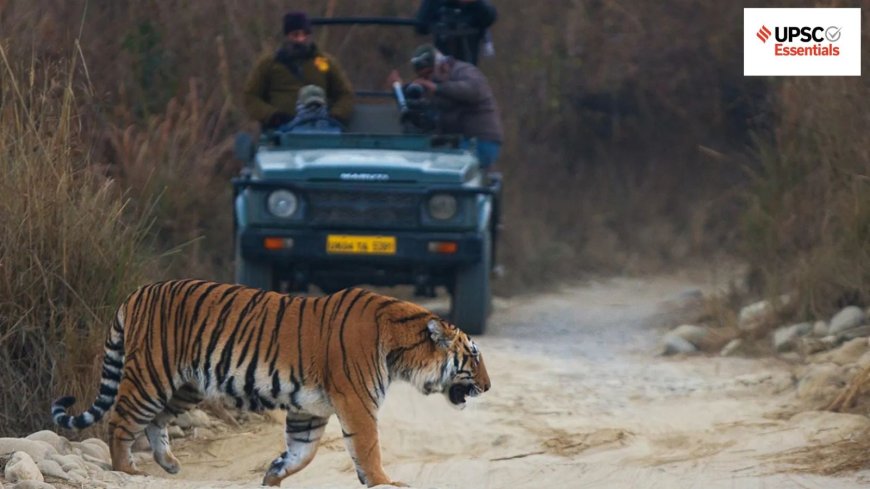UPSC Essentials | Mains answer practice — GS 3 : Questions on setting up tiger safaris and Left Wing Extremism (Week 105)

UPSC Essentials | Mains Answer Practice — GS 3: Questions on Setting Up Tiger Safaris and Left Wing Extremism (Week 105)
Breaking News, Daily Updates & Exclusive Stories - asarkari
As the competitive landscape of the UPSC Civil Services Examination intensifies, the focus shifts to the General Studies Paper 3, which is pivotal for aspirants aiming to succeed in the Mains examination. This week's topic delves into critical environmental management and internal security issues, specifically setting up tiger safaris and addressing Left Wing Extremism. In this article, we aim to provide a comprehensive exploration of these subjects along with reflective questions aimed at enhancing your answer-writing skills.
Tiger Safaris: A Sustainable Approach to Wildlife Conservation
India is home to approximately 75% of the world's tiger population, making the conservation of this majestic species crucial not just for biodiversity but also for socioeconomic factors. One proposed solution is the establishment of tiger safaris. This brings together the need for wildlife conservation and sustainable tourism, which can generate substantial revenue while ensuring the protection of natural habitats.
To set up effective tiger safaris, it is important to consider various elements, including:
- Community Participation: Involving local communities can foster a sense of ownership and responsibility towards wildlife conservation.
- Infrastructure Development: Creating eco-friendly infrastructure that minimizes human impact on natural habitats is essential.
- Visitor Education: Educating tourists about biodiversity and conservation efforts can enrich their experience and promote responsible tourism.
Reflective Question: How can policy frameworks contribute to the effective management of tiger safaris in India?
Left Wing Extremism: Understanding the Challenge
Left Wing Extremism (LWE) has been a persistent challenge impacting various states in India, leading to violence and impacting socioeconomic development. The presence of LWE is primarily concentrated in resource-rich states, where grievances over development and land rights fuel unrest. Addressing this problem requires a multifaceted approach.
Key strategies to combat Left Wing Extremism include:
- Development Initiatives: Investing in education, healthcare, and infrastructure in affected regions can undermine LWE's influence.
- Intelligence Sharing: Enhanced cooperation among security agencies can lead to improved operations against extremist groups.
- Dialogue and Rehabilitation: Engaging former extremists and offering them rehabilitation can facilitate reintegration into society.
Reflective Question: What role does socio-economic development play in mitigating the threat posed by Left Wing Extremism?
Conclusion
Understanding the complexities of environmental management and security issues is foundational for UPSC aspirants. By engaging with real-world scenarios such as setting up tiger safaris and addressing Left Wing Extremism, candidates can not only improve their writing skills but also contribute to meaningful discussions on conserving our environment and fostering social harmony in India. For more updates, visit https://asarkari.com and stay informed about the latest UPSC strategies and insights.
Team asarkari
Keywords:
UPSC, Mains answer practice, General Studies 3, tiger safaris, Left Wing Extremism, wildlife conservation, sustainable tourism, community participation, socio-economic development, intelligence sharing, dialogue rehabilitationWhat's Your Reaction?
 Like
0
Like
0
 Dislike
0
Dislike
0
 Love
0
Love
0
 Funny
0
Funny
0
 Angry
0
Angry
0
 Sad
0
Sad
0
 Wow
0
Wow
0









































